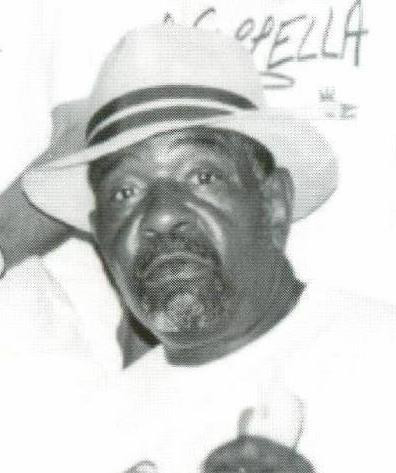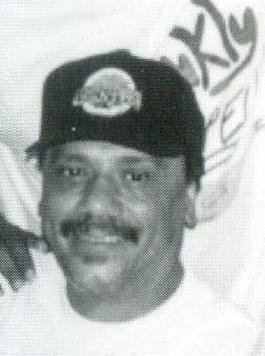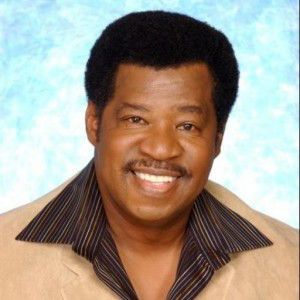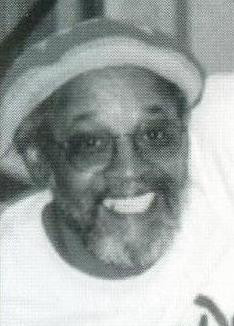
The Persuasions
Band, *1969 US, Brooklyn
R&B/Soul
In 1969, Frank Zappa heard The Persuasions singing live over the phone in a New Jersey record shop, picked his jaw up off the ground and promptly flew the group to Los Angeles to record their first album “A Cappella”. Thus began a 25-album recording career that focused on R&B, Soul, Pop, Rock ‘n’ Roll, but eventually included full album tributes to Frank Zappa, The Grateful Dead and The Beatles. The group even recorded a children’s album, “On The Good Ship Lollipop,” winner of many parents’ group awards. Through it all, The Persuasions’ sound was crowned by Jerry Lawson’s sweet and smoky lead baritone, (which began as a tenor), his effortlessly organic vocal arrangements, and his electrifying stage charisma. Critics often place Lawson’s inspired phrasing in a context with Sam Cooke, Brook Benton, and Otis Redding. Modern vocal groups such as Take 6, Rockapella, The Nylons and Boys II Men all cited “The Kings of A Cappella” as a primary influence. The L.A. Weekly once wrote, “The Persuasions are to singing what Muhammad Ali was to boxing—invincible, innovative, original, beautiful.” The five Persuasions—Jerry Lawson, Jimmy Hayes, Joe Russell, Jayotis Washington, and Herbert “Toubo” Rhoad—fell together by chance in 1962, harmonizing on outdoor basketball courts in Brooklyn after pick-up games. They went on to release 25 albums and to perform or record with artists including Liza Minelli, Bette Midler, Stevie Wonder, Lou Reed, Van Morrison, Paul Simon, Joni Mitchell, Gladys Knight, Patti LaBelle, Little Richard, Nancy Wilson, The Neville Brothers, Country Joe McDonald, B.B. King, John Hiatt, Leon Redbone. Their music has turned up in films from “Joe and the Volcano” to “The Heartbreak Kid,” “Streets of Gold,” and “E.T.” The Persuasions’ first record deal was with Frank Zappa in 1968. He “discovered” them over the phone when their friend (and eventual producer) David Dashev, phoned Zappa from a New York studio, declaring, “you’ve got to hear this.” They debuted to the world with the LP, A Cappella on Zappa’s Straight label. Said Zappa many years later ” I could tell, even over the phone, that these guys were something special. Rock critic and author Greil Marcus once called The Persuasions’ style a “perfect marriage of passion and intelligence,” and Rolling Stone rated their 1977 album, Chirpin’, as one of the hundred best works of the 1970s. Mix Magazine proclaimed “The Persuasions are four parts of one voice, one spirit.” Cash Box correctly noted, in 1996, “These all-vocal, instrument-free heroes paved the way for today’s platinum A Cappella acts, Take 6, and Bobby McFerrin, as well as the retro-hip-hop styles of Boyz II Men, and Pentatonix.” Following their Straight album, The Persuasions signed with Capitol and recorded three of the most arresting vocal albums ever made: We Came to Play, Spread the Word, and Street Corner Symphony. They covered tunes by Bob Dylan, Sam Cooke, Kurt Weill, Curtis Mayfield, The Temptations, Joe South, Rogers and Hammerstein, Lennon and McCartney. This eclectic mix of material and genre was a direct reflection of Lawson’s taste in music, and became a template for the many Persuasions albums that were to follow, culminating in the 1990’s with a gospel album, a children’s album, and acclaimed tribute albums to Frank Zappa, The Beatles, and The Grateful Dead. These were singers in the tradition of great gospel A Cappella groups such as The Golden Gate Quartet and The Fairfield Four, but the Persuasions advanced the art form into a percolating, pulsing, street-edged meld of rock ‘n’ roll, soul, country, blues. . .In short, they “Persuasionized” any songs that suited them, and made them their own—from “Papa Oom Mow Mow” (heard in “E.T.”) to “Curtis Mayfield’s “Man Oh Man” to Kurt Weill’s “Oh Heavenly Salvation.” Lawson adapted a huge range of popular music to A Cappella style, with his own original arrangements, and co-produced Persuasions and recordings. He was an electrifying front man who also had the gift of gab. Some of his between-song patter was simply great stand-up comedy. The other members of the group all made vital contributions to the unique Persuasions sound. Jimmy Hayes’ silky bass-singing was and is without peer in all Contemporary A Cappella history—perhaps all A Cappella history. “Sweet Joe” Russell’s mighty harmonies and occasional leads were essential to the overall Persuasions sound. Jayotis Washington’s elastic tenor provided contrast on occasional novelty tunes, and Toubo Rhoad’s “invisible” baritone sort of held the proceedings together. Though discovered by college radio in the early ’70s, championed by Barry “Dr. Demento” Hansen (who had them record his theme song), they got little more than token FM airplay on the west coast in the ’70’s, while in New York they were being played constantly by Frankie Crocker on WBLS. Their albums were often wrongly relegated to “Doo Wop” and “oldies” bins in record stores. Still, they carried on, building a deeply devoted audience and touring the world. Their live performances remain the stuff of legend (thankfully borne out by various audience recordings and Wolfgang’s Vault shows.) Incredibly, Bruce Springsteen opened for The Persuasions on more than one occasion. In 1979 The Persuasions became an integral part of Joni Mitchell’s legendary “Shadows and Light” tour. Throughout the 60s, 70s, and most of the 80s, The Persuasions preached the A Cappella gospel almost entirely alone—certainly the secular, eclectic A Cappella gospel. Although they didn’t know it, they had created the genre that is today known as Contemporary A Cappella. Perhaps, to really understand the impact of this American musical institution, it is best to quote Tom Waits, who famously remarked: “These guys are deep sea divers. I’m just a fisherman in a boat.” Footnote: There is a group calling itself “The Persuasions,” trading on well-known Persuasions repertory and arrangements today. They are effectively a tribute group that includes one member of the original five, Jayotis Washington. The leader of this group was never authorized by all original group members to use the name, “Persuasions.” Having one original member, and still claiming the original name seems unfair to audiences who will not know the difference between the authentic Persuasions and this group. Recordings and live performances after 2003 are not the work of the original, renowned A Cappella group, The Persuasions.* *Except the albums, “The Persuasions Live at McCabe’s,” and “Persuasions of the Dead.”
Members
 | Joe Russell voc |
 | Jimmy Hayes voc, b |
 | Jerry Lawson voc |
 | Jayotis Washington voc |
 | Herbert Rhoad voc US |
Popular Tracks 

Track list and 30sec audio provided by ![]()
Band Membership
Discography
| Title | Artist | Year | Type |
|---|---|---|---|
| Ladies and Gentlemen: Barenaked Ladies & the Persuasions | Barenaked Ladies & The Persuasions | 2017 | Album |
| Knockin' On Bob's Door | The Persuasions | 2010 | Album |
| Sing U2 | The Persuasions | 2005 | Album |
| A Cappella Dreams | The Persuasions | 2003 | Album |
| Sing The Beatles | The Persuasions | 2002 | Album |
| Sunday Morning Soul | The Persuasions | 2000 | Album |
| Might As Well: The Persuasions Sing Grateful Dead | The Persuasions | 2000 | Album |
| Frankly A Cappella - The Persuasions Sing Zappa | The Persuasions | 2000 | Album |
| Sunday Morning Soul | The Persuasions | 2000 | Album |
| On The Good Ship Lollipop | The Persuasions | 1999 | Album |
| Man, Oh Man: The Power Of The Persuasions | The Persuasions | 1997 | Compil. |
| You're All I Want For Christmas | The Persuasions | 1997 | Album |
| Sincerely | The Persuasions | 1996 | Album |
| Right Around The Corner | The Persuasions | 1994 | Album |
| Ships At Sea, Sailors & Shoes | Ned Sublette, Lawrence Weiner & The Persuasions | 1993 | Album |
| Toubo's Song | The Persuasions | 1993 | Album |
| Papa Was A Rolling Stone | The Persuasions | 1989 | Album |
| I Woke Up In Love This Morning | The Persuasions | 1985 | Single |
| No Frills | The Persuasions | 1984 | Album |
| Good News | The Persuasions | 1982 | Album |
| Comin' At Ya | The Persuasions | 1979 | Album |
| Papa Oom Mow Mow | The Persuasions | 1977 | Single |
| Chirpin' | The Persuasions | 1977 | Album |
| One Thing On My Mind | The Persuasions | 1975 | Single |
| I Just Want To Sing With My Friends / Somewhere To Lay My Head | The Persuasions | 1974 | Single |
| More Than Before | The Persuasions | 1974 | Album |
| Island / A Lonesome Love Song | The Persuasions | 1974 | Single |
| I Really Got It Bad For You / Lookin' For A Love | The Persuasions | 1974 | Single |
| I Just Want To Sing With My Friends | The Persuasions | 1974 | Album |
| Good Old Acappella | The Persuasions | 1973 | Single |
| We Still Ain't Got No Band | The Persuasions | 1973 | Album |
| Love You Most Of All | The Persuasions | 1973 | Single |
| Tempts Jam | The Persuasions | 1972 | Single |
| Stardust / I Could Never Love Another | The Persuasions | 1972 | Single |
| Ten Commandments Of Love / Good Times | The Persuasions | 1972 | Single |
| Spread The Word | The Persuasions | 1972 | Album |
| Three Angels / Three Angels (Reprise) | The Persuasions | 1972 | Single |
| Street Corner Symphony | The Persuasions | 1972 | Album |
| The Ten Commandments Of Love | The Persuasions | 1972 | Single |
| Don't Know Why I Love You | The Persuasions | 1972 | Single |
| Buffalo Soldier | The Persuasions | 1972 | Single |
| It's You That I Need | The Persuasions | 1971 | Single |
| We Came To Play | The Persuasions | 1971 | Album |
| Acappella | The Persuasions | 1970 | Album |
| Sing Stardust Acappella | The Persuasions | 1969 | Album |
| Party In The Woods / It's Better To Have Loved And Lost (Than Never Loved At All) | The Persuasions | 1969 | Single |
| Without A Song | The Persuasions | Single | |
| The Magic Of Love / Standing All Alone | The Persuasions | Single |
